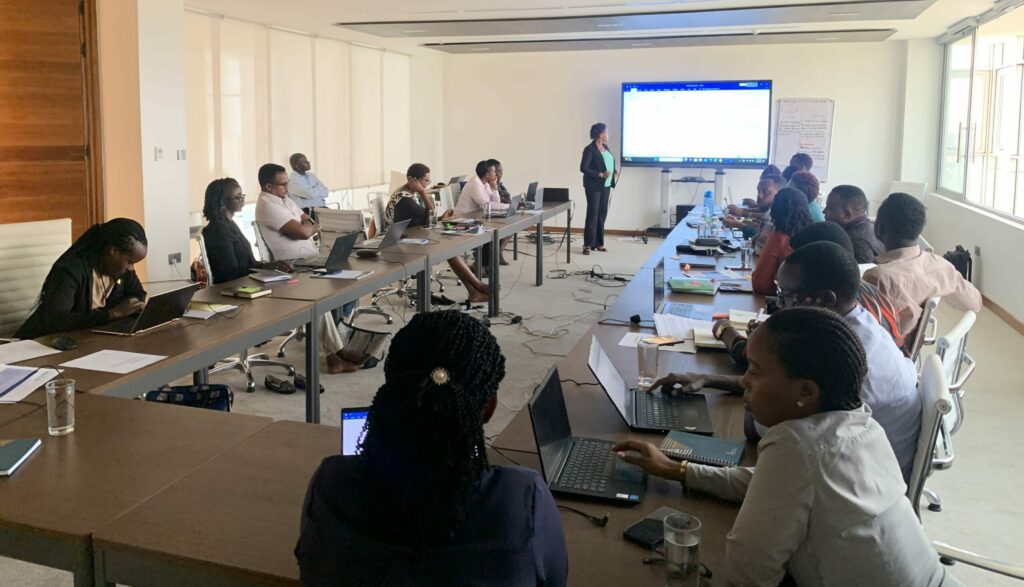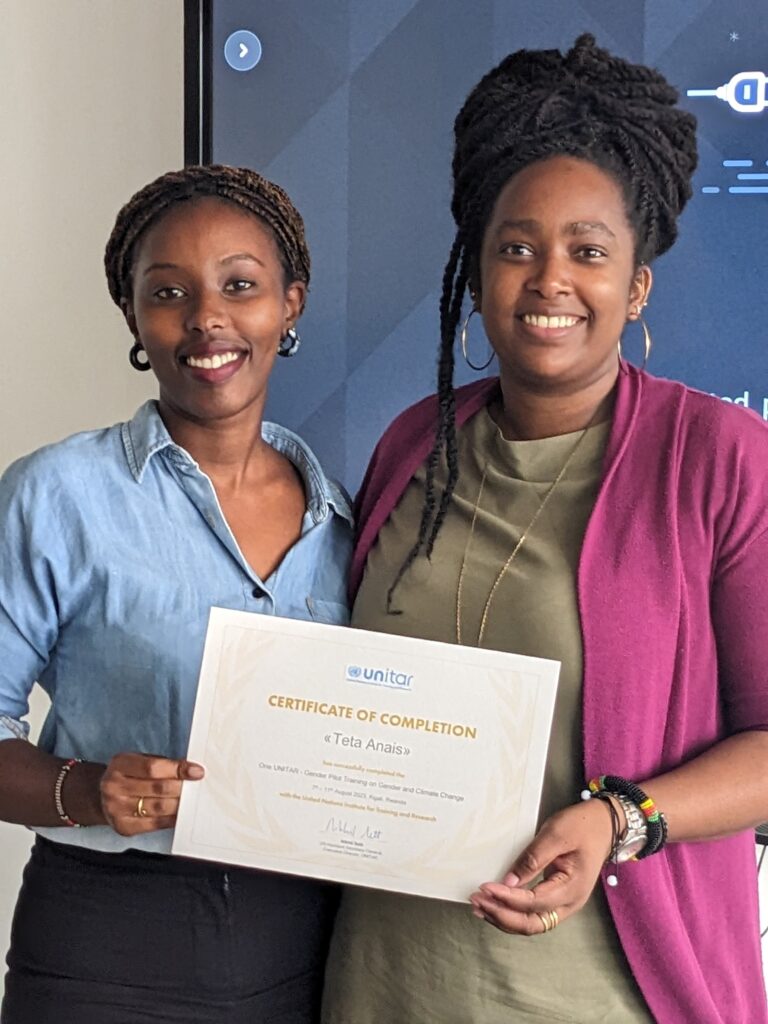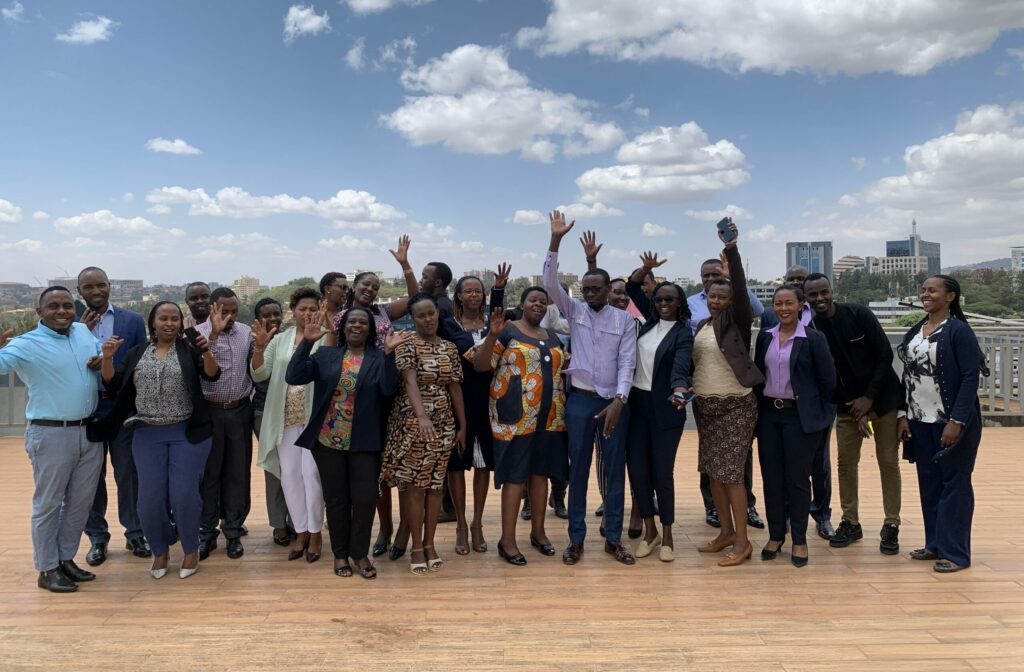“The land of a thousand hills” – this statement is no exaggeration to the undulating landscape of Rwanda. The hills were also a welcoming sight for UNITAR’s pilot training on gender and climate change, organized in collaboration with the Gender Monitoring Office of Rwanda and CIFAL Kigali with support from the Ministry of Environment under the One UNITAR Gender initiative. The One UNITAR Gender promotes innovative learning solutions on women’s empowerment, building on extensive experiences and knowledge of all UNITAR divisions.

Participants at the training in a meeting room.
The training, held from 7 – 11 August 2023 at the CIFAL Kigali centre, aimed to build capacities of a mix of participants drawn from government institutions including the Gender Monitoring Office, Rwanda Environment Management Authority, Rwanda Standards Board, National Institute of Statistics, Rwanda Green Fund (FONERWA), Ministry of Environment, Rwanda Cooperation and civil society organizations including Action Aid and ADEPE. The focus of the training was on climate change and the interlinkage with gender equality and women’s empowerment. Climate change as a threat multiplier can deepen existing gender inequalities. Rwanda’s updated Nationally Determined Contribution (NDC) aims to “promote and encourage the mainstreaming of gender considerations in climate change issues” including the capturing and reporting of gender disaggregated data. Ensuring that institutions like the Gender Monitoring Office that are mandated with monitoring gender related commitments within Rwanda’s ratified policies across sectors have the capacity to not only understand climate change impacts and differentiated effects on people but also on how climate policies can be made gender-responsive – from policy design to monitoring and evaluation.

A participant and Ms. Lisa Main, from UNITAR.
Rwanda is a leader in the African continent on advancing women’s participation in decision-making, with nearly two thirds of its parliamentary seats and 52 per cent of cabinet positions held by women. Women in Rwanda are also leading the charge when it comes to climate action, with examples from community-level champions to trailblazers at national and international levels. This training was a step towards enabling Rwanda’s climate policies to be gender-responsive and that a multi-institutional approach is taken towards their development, implementation, monitoring and evaluation. The end-goal is to ensure that climate policies speak to the realities of frontline communities and vulnerable groups and that Leaving No One Behind is not just a principle, but a practice.

